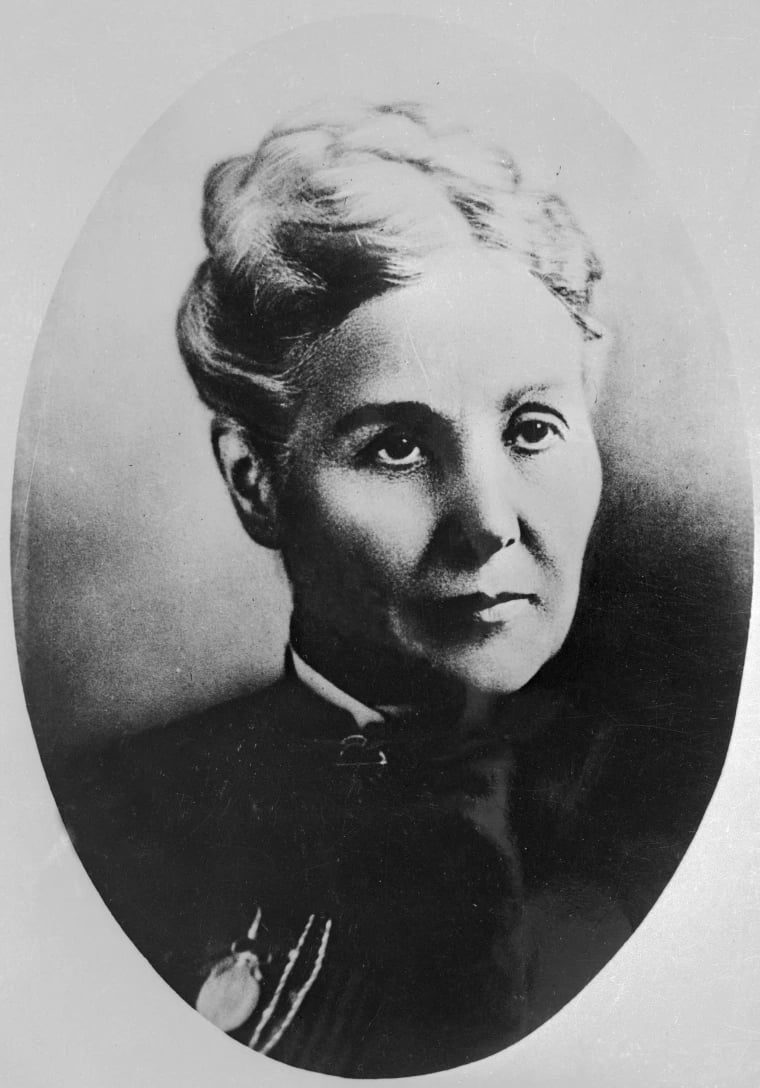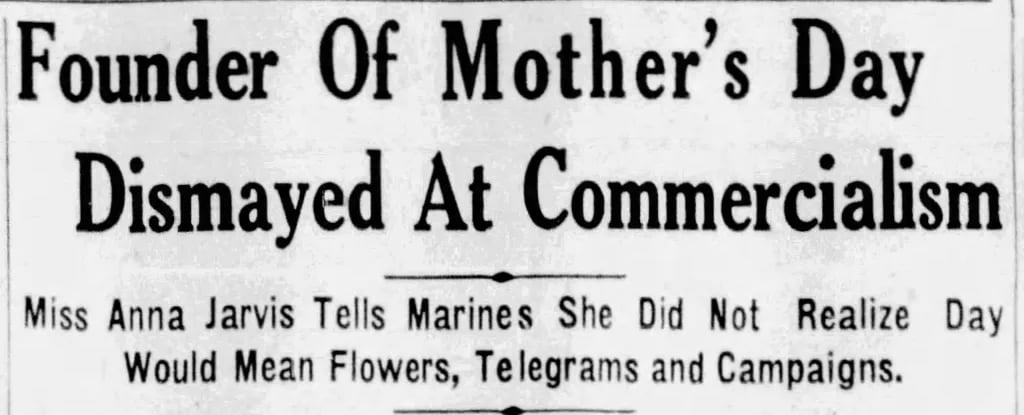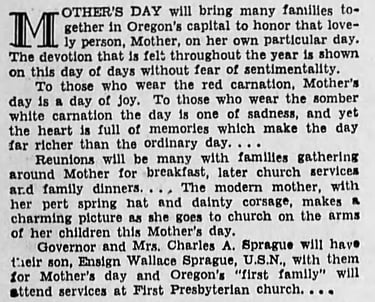Honoring heritage and reuniting families
The History of Mother’s Day: A Legacy of Love and Advocacy
With Mother’s Day coming up in a few weeks, it’s the perfect opportunity to talk about the history of this special day! Mother’s Day is more than just a Sunday in May filled with flowers, brunches, and greeting cards. It’s a holiday rooted in deep gratitude, tireless advocacy, and a daughter’s determination to honor her mother’s legacy.
Aimee Rose-Haynes
4/27/20254 min read


The History of Mother's Day
Mother's Day, a heartfelt celebration of motherhood and maternal bonds, is widely recognized around the globe. Although often viewed today as a commercialized holiday, the roots of Mother's Day lie deeply embedded in history, intertwining movements for peace, women's rights, and personal devotion. Understanding its evolution reveals a meaningful journey from earnest origins to today's sentimental traditions.
Early Beginnings
Celebrations of motherhood have existed for thousands of years, with ancient Greeks and Romans honoring maternal goddesses. Greeks paid tribute to Rhea, the mother of the Olympian gods, while Romans celebrated the festival of Hilaria, dedicated to Cybele, their mother goddess. These ancient festivals marked the earliest known instances of organized maternal veneration.
Mother's Day's American Roots
The modern incarnation of Mother's Day has distinctly American roots, dating back to the 19th century. It began with the efforts of women advocating for peace and improved living conditions following the devastation of the American Civil War. In 1870, activist and poet Julia Ward Howe issued a "Mother's Day Proclamation," passionately calling for mothers worldwide to unite and demand peace in response to war’s devastation.
In the years following, several individuals independently promoted the idea of a special day honoring mothers. However, Mother's Day as it is known today primarily owes its establishment to the persistence of one woman: Anna Jarvis.
Anna Jarvis and the Establishment of Mother's Day
Anna Jarvis of West Virginia is credited as the official founder of Mother's Day in the United States. After the death of her own mother in 1905, Jarvis sought to create a day to honor the sacrifices mothers made for their children. She envisioned Mother's Day as a personal occasion, marked by simple, heartfelt gestures such as writing letters and visiting mothers.
Jarvis organized the first official Mother's Day celebration on May 10, 1908, at Andrews Methodist Episcopal Church in Grafton, West Virginia, where her mother had taught Sunday school. To symbolize respect and appreciation, Jarvis distributed carnations, which became the official flower of Mother's Day, red carnations for living mothers and white carnations for those who had passed away.
Her efforts quickly gained traction nationwide. By 1914, President Woodrow Wilson officially designated the second Sunday in May as Mother's Day, a national holiday recognizing motherhood and maternal contributions.
Commercialization and Controversy
Ironically, Anna Jarvis later became disillusioned by the commercialization of Mother's Day. The original intention, an intimate family observance had rapidly evolved into a highly profitable occasion for businesses. Greeting card companies, florists, and retailers capitalized extensively, transforming the holiday into one of the year's most commercially significant events.
Jarvis fiercely opposed this commercialization, embarking on campaigns to restore the holiday to its roots. She even urged people to avoid purchasing cards and flowers, advocating instead for handwritten letters and personal visits. Despite her efforts, commercial interests prevailed, shaping Mother's Day into the consumer-driven event familiar today.
Mother's Day Around the World
Today, Mother's Day is celebrated globally, though traditions and dates vary considerably. In the United Kingdom, Mothering Sunday falls three weeks before Easter, historically linked to religious observances. In Mexico and several Latin American countries, "Día de las Madres" on May 10 involves special celebrations, meals, and performances.
Each culture contributes unique expressions to the holiday, yet all share a core purpose: honoring mothers and acknowledging their invaluable role within families and society.
The Emotional Challenges of Mother's Day
While Mother's Day is generally a joyful celebration, it can also be a deeply painful occasion for those who have lost their mothers. The day serves as a poignant reminder of grief, amplifying feelings of loneliness, sadness, and longing. For individuals coping with loss, Mother's Day can evoke mixed emotions, nostalgia for past celebrations, regret over unresolved conflicts, or sorrow for the absence of maternal comfort.
Many find solace through remembrance traditions, such as visiting grave sites, lighting candles, or sharing stories of cherished memories. Acknowledging these difficult feelings openly can be an essential step toward healing, helping individuals honor their mothers' legacies and maintain meaningful emotional connections, even in grief.
Mother's Day and the Adoption Community
Mother's Day carries unique significance within the adoption community, encompassing complex emotions for adopted persons, adoptive mothers, and birth mothers. For adopted persons, the day may provoke conflicting feelings of gratitude toward adoptive mothers and curiosity, or loss related to birth mothers. This can result in internal tension as adopted persons grapple with dual identities and familial connections.
Similarly, birth mothers who placed children for adoption often experience an emotional complexity rarely acknowledged on this holiday. While Mother's Day can intensify feelings of loss, grief, and longing, it can also be a day of quiet reflection and hope, serving as an opportunity to honor the difficult decision of placing a child for adoption.
Adoptive mothers, too, experience distinct emotions, gratitude for the opportunity to parent, coupled sometimes with sensitivity toward their child’s mixed emotions. Open communication, understanding, and empathy within families help create an inclusive celebration, acknowledging and respecting the multifaceted nature of motherhood.
A Legacy of Appreciation
Despite these emotional complexities and commercial influences, the core essence of Mother's Day, celebrating and appreciating mothers remains intact. It offers a yearly reminder to express gratitude and acknowledge the countless ways mothers enrich our lives.
From ancient festivals to modern traditions, Mother's Day continues as a meaningful celebration honoring maternal love. Though today's observances might look different from Anna Jarvis's original vision, the spirit behind Mother's Day endures... capturing a universal sentiment of love, respect, and heartfelt thanks to mothers everywhere, while thoughtfully recognizing and supporting those for whom this day is especially complex or challenging.
-Aimee Rose-Haynes








